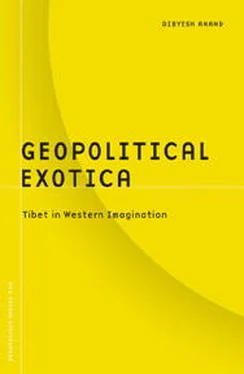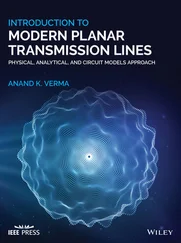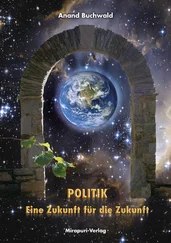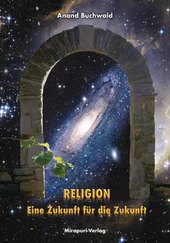One important reason for eroticization, of course, has been to escape from conventional censorship in metropolitan societies. Association is made between the Orient and the "freedom of licentious sex" and "escapism of sexual fantasy" (Said 1978, 190). Contemporary incarnations of such images can be seen in a range of places, from sex tourism at Thai beaches to the standardization of "Oriental" sex as a commodity in the "red light" districts of Europe. At the same time, the Orient also provides opportunities for the play of "forbidden" desires of same-sex love, especially male homosexuality, as evident in the works of William Beckford, Lord Byron, T. E. Lawrence, Edward Carpenter, and E. M. Forster (see Parsons 1997), to name a few. Investment of these "forbidden" desires in the non-West may be a resistance to the hegemonic masculinity of metropolitan culture, but it does not challenge the unequal power relations between the Western representer and the non-Western represented.
The very language of exploration was marked by strong gender distinctions and drew much of its subconscious force from sexual imagery. Discovery of America was often seen literally as dis-covering of the unknown land, un-covering of the naked, available, desirable, and primitive female body of America by the clothed, civilized European man (for instance, Jan van der Straet's 1575 depiction The Discovery of America; see Gallagher 1997).
The intent to subjugate indigenous people can be seen as the male's mastery of the female. The feminization of colonial space is an act of epistemic as well as corporeal violence. The feminized landscape titillated and provoked explorers and discoverers to take control of her, to possess her-this was a common sentiment expressed in exploration literature from the fifteenth century onward. Edward William Lane described his first sight of Egypt in 1825 thus: "As I approached the shore, I felt like an Eastern bridegroom, about to lift the veil of his bride, and to see, for the first time, the features that were to charm, or disappoint, or disgust him" (in Kabbani 1986, 67).
These erotics of imperial conquest evident in the evocation of feminized space were linked to the Enlightenment's pursuit of truth. After all, "study, understanding, knowledge, evaluation… are instruments of conquest" (Said 1978, 309). European consciousness is encoded as masculine and the object of knowledge as feminine. The combination of knowledge and eroticization is illustrated strongly in Bell's description of Lhasa as practically "untouched by white men"-"Shut off from their outer world by their immense mountain barriers, Tibet still presented a virgin field of inquiry" (1928, viii; emphasis added). Grenard regrets Tibet's closure, her foiling of attempts by Europeans to pry her open: "In truth, the Tibetans are one of the nations that have changed the least in the course of the centuries and it is greatly to be regretted that they are so difficult to access and so obstinately opposed to enquiries" (1904, 373). This resonates with Said's analysis of the Middle East in the Western imagination: "The Middle East is resistant, as any virgin would be, but the male scholar wins the prize by bursting open, penetrating through the Gordian knot despite the 'taxing task'" (1978, 309).
Not surprisingly, after the British invasion of Lhasa in 1903-4, Lord Curzon wrote, "I am almost ashamed of having destroyed the virginity of the bride to whom you aspired, viz. Lhasa," in a letter addressed to Sven Hedin (a famous Swedish explorer) as the latter described the expedition as "the rape of Lhasa" (in Schell 2000, 201). For his part, Hedin lost "the longing that had possessed [him] to penetrate the Holy City" (in Bishop 1989, 176). These writers and commentators draw upon a long tradition of what McClintock calls "European porno-tropics" treating "male travel as an erotics of ravishment" in which uncertain places were figured as "libidi-nously eroticized" (1995, 22). The most prevalent metaphor for the British invasion of Tibet was that of "unveiling." [23]Candler (1905) titled his account Unveiling of Lhasa. The attitude of European travelers to Tibet was "almost voyeuristic," the most commonly expressed aim being to "get a 'peep' at Tibet, or at Lhasa" (Bishop 1989, 177). [24]Millington, who later wrote his book as "a man in the street," described going to Lhasa as "assisting in drawing aside a purdah" and departure as the "show was over" (1905, 77, 199). Writing about Lhasa, Waddell says that the enigma has been solved (virginity lost!) for the
fairy Prince of "Civilisation" has roused her from her slumbers, her closed doors are broken down, her dark veil of mystery is lifted up, and the long-sealed shrine, with its grotesque cults and its idolised Grand Lama, shorn of his sham nimbus, have yielded up their secrets, and lie disenchanted before our Western eyes. Thus, alas! Inevitably, do our cherished romances of the old pagan world crumble at the touch of our modern hands! (1905, 2)
This triumphalism (of civilization over obstinacy) was mixed with regret and a sense of inevitability with a feeling of betrayal. For "Shangri-la" (most commonly associated with Tibet, as discussed in the next chapter) is conceptualized as "a virginal state: once defiled by foreign invasion, modernization or internal political strife, it is as if some kind of betrayal has taken place" (Hutt 1996, 52). Candler expresses these mixed emotions when he says, "To-morrow, when we enter Lhasa, we will have unveiled the last mystery of the East. There are no more forbidden. Why could we have not left at least one city out of bounds?" (in Sharma and Sharma 1996, 119).
Eroticization was not the only representational technique deployed by the West when gendering the Orient. Moralization was also an effective tool. Morality was seen as a sign of progress, and European bourgeois standard came to represent the pinnacle of civilization. This was contrasted with a "lack" of morality among natives, "Orientals," and the domestic working classes. The policing of morality primarily involved policing women's bodies. Hence, cultures (like that of Tibet) where this sort of policing was negligible were seen as inferior. A common idea among travelers and commentators was that Tibetans ranked low in terms of morality and the "freedom" accorded to women was both a cause and an effect of this low standard. A discourse of filth and contamination was attached to that on morality and the status of women. In the words of a member of the British expedition to Lhasa in 1903-4: "Tibetan morals are not of a very high order and there seems to be a good deal of promiscuousness in the relations of the lay population. I twice came across parties of men and women bathing together in a small stream behind the Potala, which struck me as most unusual as the majority of Tibetans are filthy and grimy to a degree" (IOR: MSS EUR/C270/FL2/E/1/144 n.d., 8).
Macdonald contended that in Tibet women have much influence and, compared with the West, morals are lax (1929, 133-34). Those who showed admiration for Tibetan society were not exempt from passing judgments about the Tibetans-Riencourt argued that Europeans and Americans can learn a lot from the Tibetans because among them women are "perfectly free" and equal; however, a laxity in sexual relations was a sore spot as it led to rampant sexually transmitted diseases (1950, 152-53). In contrast to European (and Japanese, in the case of a Japanese traveler to Lhasa, Ekai Kawaguchi) women, Tibetan women are unclean, disrespectful to their husbands, and lacking character and hence are "objects more to be loved and pitied not respected and adored" (Kawaguchi in Sharma and Sharma 1996, 175). Thus, we see that eroticiza-tion and moralization often went hand in hand as representational strategies.
Chronopolitics
Chronopolitics, or the politics of time, has played an important role in Western representations of the non- Western Other. The Other has been imagined as socially and culturally backward (in time)- medieval (feudal), archaic (like ancient Egyptians or Mesopota-mians), prehistoric (primitive), or simply beyond the matrix of time (timeless). The colonial journey and travel of contemporary Western commentators is often figured as proceeding forward in geographical space but backward in historical time. This technique rendered nondominant groups out of the present and legitimized control in the name of modernity. That natives were backward, requiring the rule/control/guidance/assistance of more advanced "foreigners" to enter the modern era, was taken as uncontested fact.
Читать дальше












